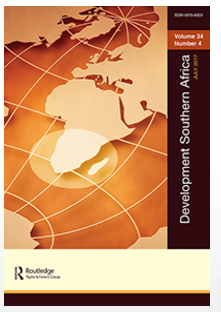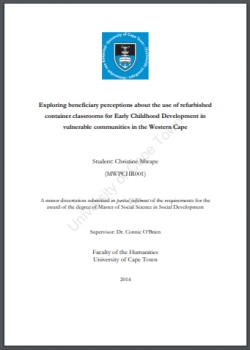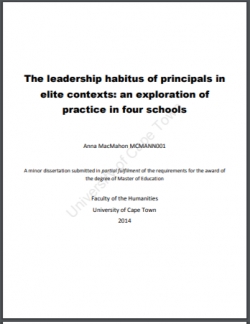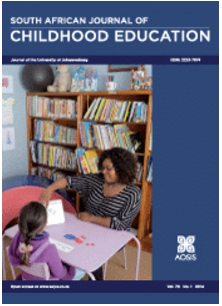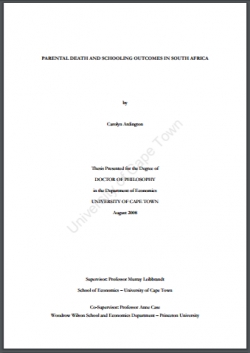Exploring the need for a community liaison person in facilitating family and community involvement in schools in the Western Cape : a case study of schools in the Joe Slovo Park informal settlement
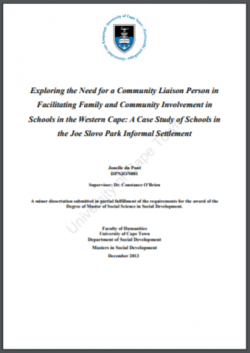
Type
Thesis
Authors
Category
ECCE, Foundation, Intermediate, Senior
[ Browse Items ]
Publication Year
2014
Publisher
URL
[ private ]
Pages
111 p.
Subject
Early childhood education, Primary education, Secondary education, Community Liaison Person (CLP), Learners, Parents, Parent involvement, Communication, Training, South Africa
Tags
Abstract
This study assessed the viability of a Community Liaison Person (CLP) in facilitating family and community involvement in schools in the Western Cape. A sample of sixteen participants consisting of five educators, four learners and four parents was drawn from two schools in the Joe Slovo Informal Settlement area. Furthermore, representatives of three NGOs were selected based on the focus of their work in education in various informal settlement areas around Cape Town. This study adopted an exploratory qualitative design using semi-structured interview schedules to guide face-to-face interviewing. Purposive non-random sampling procedures were adopted in selecting the participants. The data was analysed using Tesch’s (1990) approach. The main findings were: * Fourteen participants indicated that the non-involvement of parents in their children’s learning was largely due to time constraints and being uninformed about the role of their children’s learning outcomes. * Parents indicated that there was a lack of communication between themselves and the school, and did not know what happens at school. The principal believed there to be a breakdown of communication between parents and the school. * All sixteen participants indicated that having a Community Liaison Person (CLP) would be beneficial to the learner and saw the main role of the CLP as being the link person between the school, the family, the community and other stakeholders. Furthermore, the majority of participants believed that the CLP could create support networks amongst various stakeholders. The main recommendations were: * Training should be provided to school volunteers either by the Western Cape Education Department or a Non-Governmental Organisation so that school/family/ community linkages can be formed. * That further research (mixed methodology) be taken to determine the need and feasibility of implementing such a role as a CLP. * Specially trained community persons or someone who has a social work/community development background could fill the role of CLP.
Description
Thesis (MSocSc)--University of Cape Town, 2014
Number of Copies
1
| Library | Accession No | Call No | Copy No | Edition | Location | Availability |
|---|---|---|---|---|---|---|
| Main | 887 | 1 | Yes |
